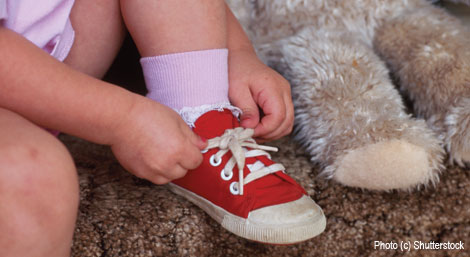How Life Learners Learn:
The Principle of Productive Failure
By Wendy Priesnitz
Failure is one aspect of learning something effectively, and not to be feared...or punished.

One of the main principles behind life learning is that people learn better when they can be active rather than passive, and when they can pursue their own interests and questions, test their own ideas, and make their own mistakes. Schools, of course, work in the opposite way, providing instruction based on someone else’s opinion of what should be studied, in an environment and on a timetable structured by someone else. There is always a “right” answer and mistakes are frowned upon and punished.
As they try to integrate technology into the classroom, some educators have begun to give at least lip service to the notion of interest-based and inquiry-based learning. But bending the principles to fit into the reality of school is another thing altogether. Perhaps someday the classroom will be left behind in the dust of the tablets and other portable devices that help children learn independently.
Meanwhile, one researcher – Manu Kapur at the Learning Sciences Lab at the National Institute of Education of Singapore – has been boosting the reputation of making mistakes. He calls it “productive failure.” Writing about his work in Time magazine, Anne Murphy Paul describes it as a learning paradox: “The more you struggle and even fail while you’re trying to master new information, the better you’re likely to recall and apply that information later.” (The headline of that article includes the word “floundering,” which I think has an unfortunate negative connotation, given that this is the way people have learned since the beginning of time! So it may be a while before mistake making gets much support academically.)
In a paper published earlier this year in the Journal of the Learning Sciences, Kapur and co-author Katerine Bielaczyc applied the principle of productive failure to mathematical problem solving in three schools in Singapore. With one group of students, the teacher provided strong instructional support and feedback. With the teacher’s help, these pupils were able to find the answers to their set of problems. The second group worked on their own and with one another but without help from the teacher.
Although they had difficulty completing the assigned problems correctly, they generated a lot of ideas about the nature of the problems and about what a solution might look like. And when the two groups were tested on the material by being asked to solve complex problems based on the earlier simpler set, the students who hadn’t received instruction “significantly outperformed” the first. The findings were the same, regardless of the level of the students’ mathematical ability.
This seems to demonstrate the difference between memorization and real learning. Kapur refers to a “hidden efficacy” that results from muddling through a problem – i.e. making mistakes and learning from them. When we spend time on a problem, we begin to understand the deep structure of it on a first-hand basis. And that apparently allows us to transfer our insight to other problems in ways that those who were passive recipients of someone else’s knowledge can’t. That, I think, is learning that’s useful in the real world.
I also think it’s safe to say that the learning is even more effective if it’s based on a problem that the learner poses in the course of their own real life. When I used to help people start small businesses, I would often tell them not to be fearful of the process, since many successful entrepreneurs failed a time or two before their next idea took off. Some of that eventual success was likely thanks to luck or timing, but the learning that resulted from the failures was most important.
Kapur goes on to suggest how productive failure can be built into the education process in systems that seem adverse to the mere word. But it’s already there in real life from a very young age – in a toddler who falls a time or two while learning to walk, in a baby who doesn’t get an immediate response to her crying and must do something different (or louder) to get attention, and in a beginning reader who stumbles over some words. Babies are not interested in short term rote memorization; they are focused on deeper understanding and learning in the real world. And so are our life learning kids; don’t worry if they fail a time or two.
Wendy Priesnitz is Life Learning Magazine’s editor, the author of four books about self-directed education, and the mother of two adult daughters who learned without school. She has been an advocate for children's rights and life learning since the 1970s.
Copyright © Life Media
Privacy Policy
  
  

|

